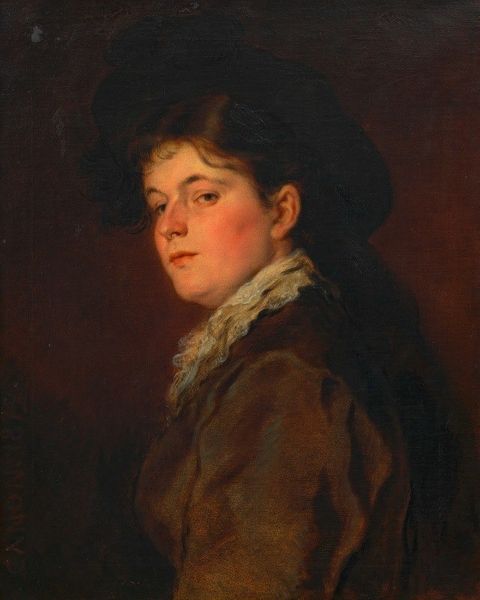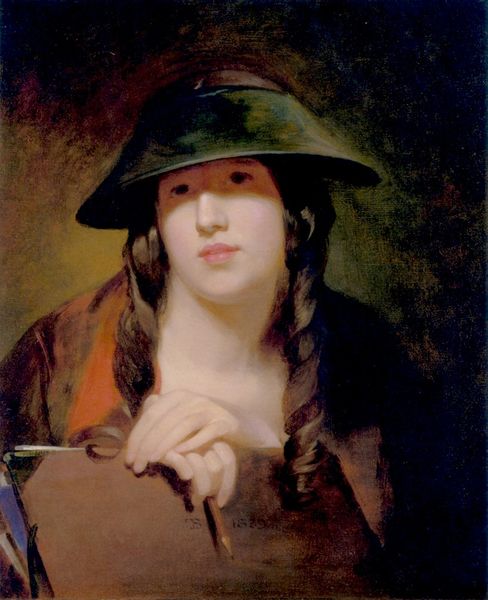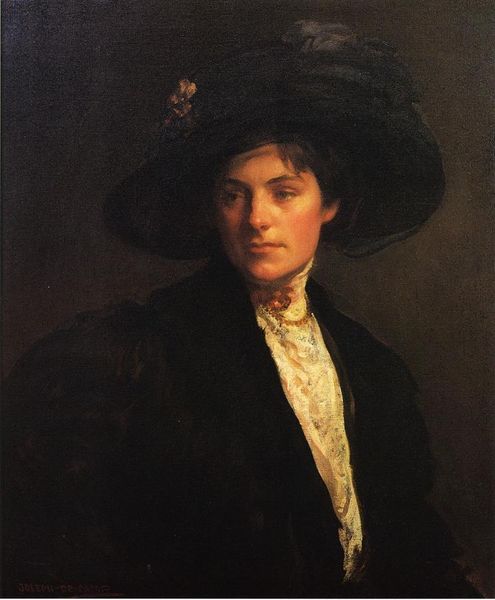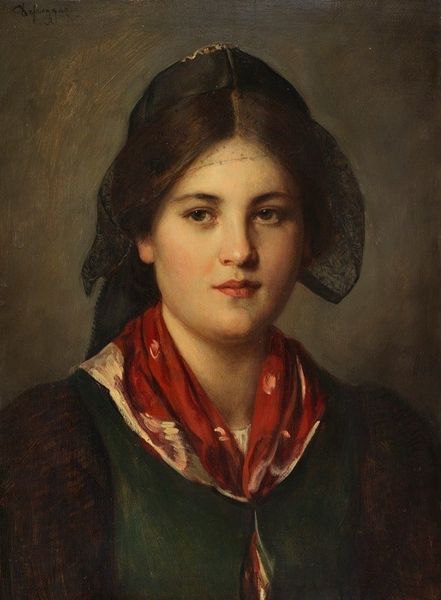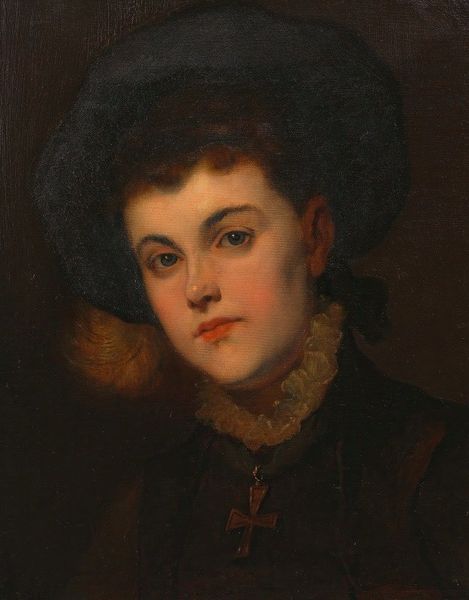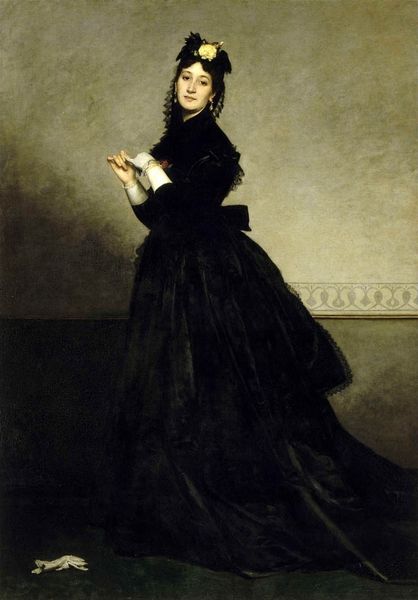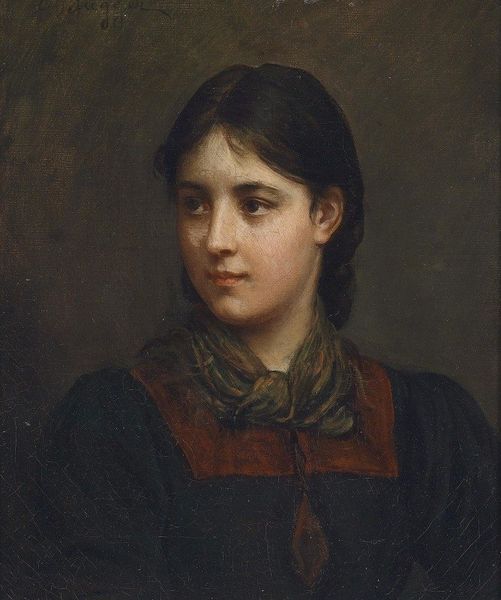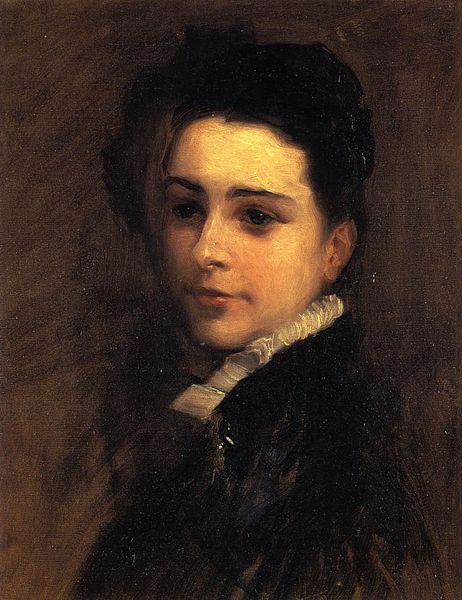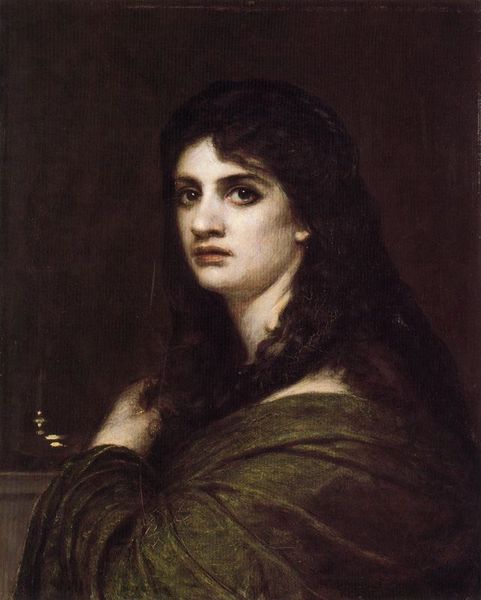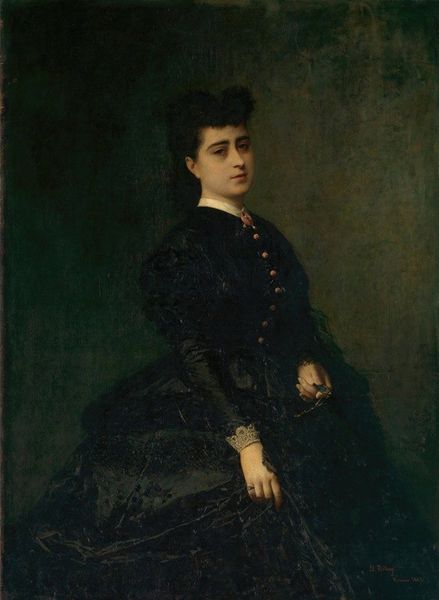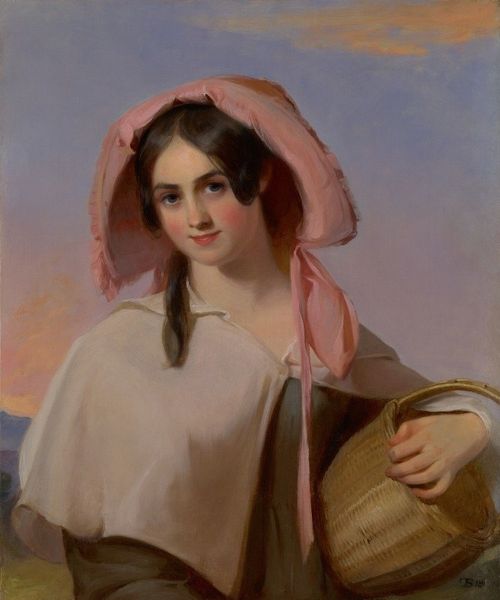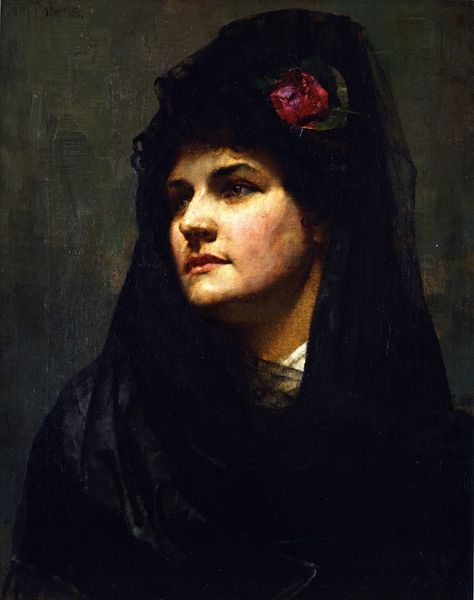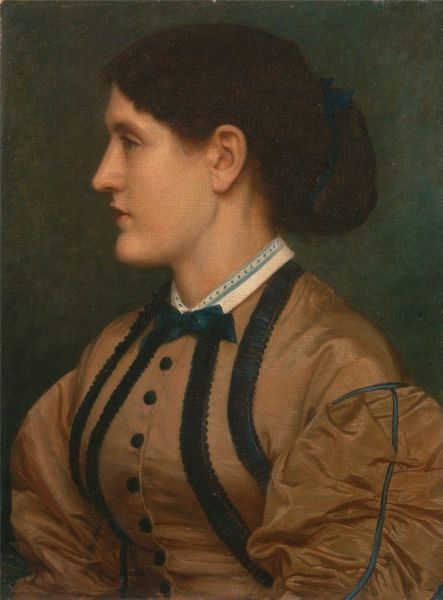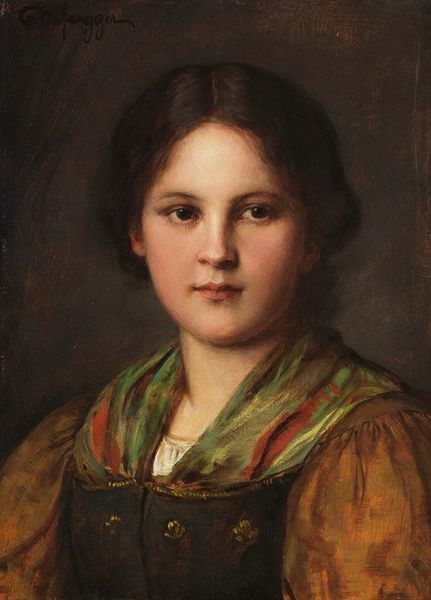
Copyright: Public domain
Eastman Johnson painted this portrait of Sarah Osgood Johnson Newton in the United States, though the exact date remains unknown. This compelling image invites us to consider the social context of portraiture in 19th-century America. Portraits were powerful tools for constructing identity and signaling social status. Here, Sarah is adorned in the elaborate mourning attire dictated by Victorian customs, likely a visual signifier of her widowhood. The somber color palette and the delicate handling of light, combined with the formal pose, imbue the portrait with a sense of dignified solemnity. While the image does not explicitly critique the art institutions of its time, it does reflect the social structures that shaped artistic production and consumption. It hints at the economic privilege that allowed a family to commission such a portrait. To fully understand the social and cultural significance of this portrait, we can consult period newspapers, fashion magazines, and etiquette manuals. Such resources allow us to decode the visual cues and gain insight into the complex relationship between art, identity, and social expectations in 19th-century America.
Comments
No comments
Be the first to comment and join the conversation on the ultimate creative platform.
